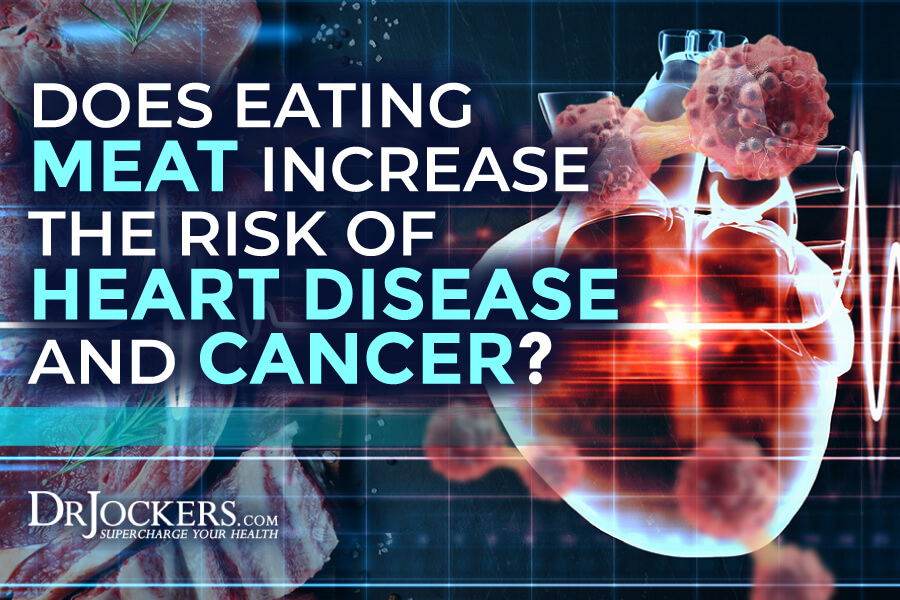 Meat: Heart Disease & Cancer (or Misconstrued Science)?
Meat: Heart Disease & Cancer (or Misconstrued Science)?
Written By Dr Bret Scher MD, FACC
Meat kills. The more we eat the more likely we are to die. At least that is what mainstream media seems to promote. But is it true? Are we more likely to die if we eat meat? Or is it possible that there is something that makes meat healthy?
That is not an easy question to answer. Yet, opponents of meat make it seem like an open and shut case. Guilty as charged.
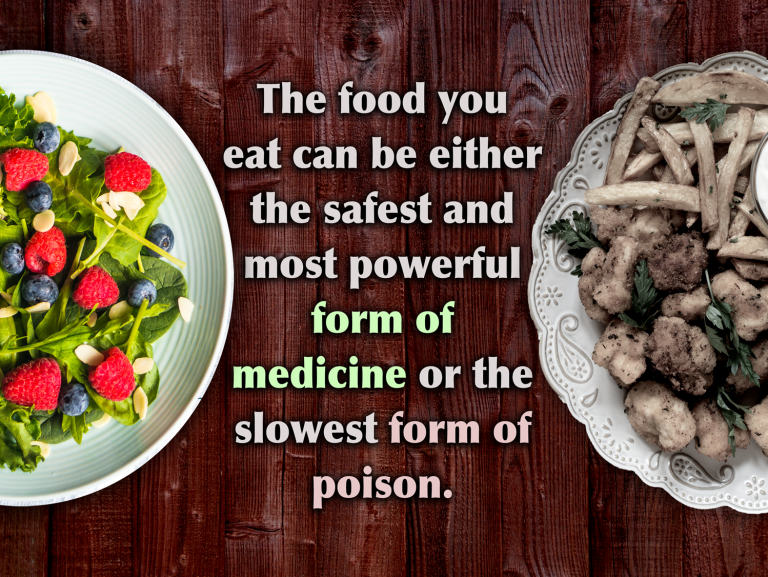
Recent Studies on Meat
Take for example the most recent news headlines about a study in Lancet Public Health. This study concluded that those who followed a low carbohydrate diet had a very small increased risk of dying, especially if they replaced the carbohydrates with animal food sources (1).
That is enough information for a catchy headline, and sure enough the media did not disappoint. But when you dig further, you realize that the details of the study don’t live up to the hype.
For starters, the nutritional data in this study came from two food frequency questionnaires over the course of 25 years, and they were 6 years apart.
How many eggs per week have you eaten over the past six years? How often have you eaten veggies? And will that remain consistent over the next 20 years?
Hopefully that shows you the quality of data we are dealing with here. Food frequency questionnaires have been shown to be incredibly unreliably, and very poor quality data.
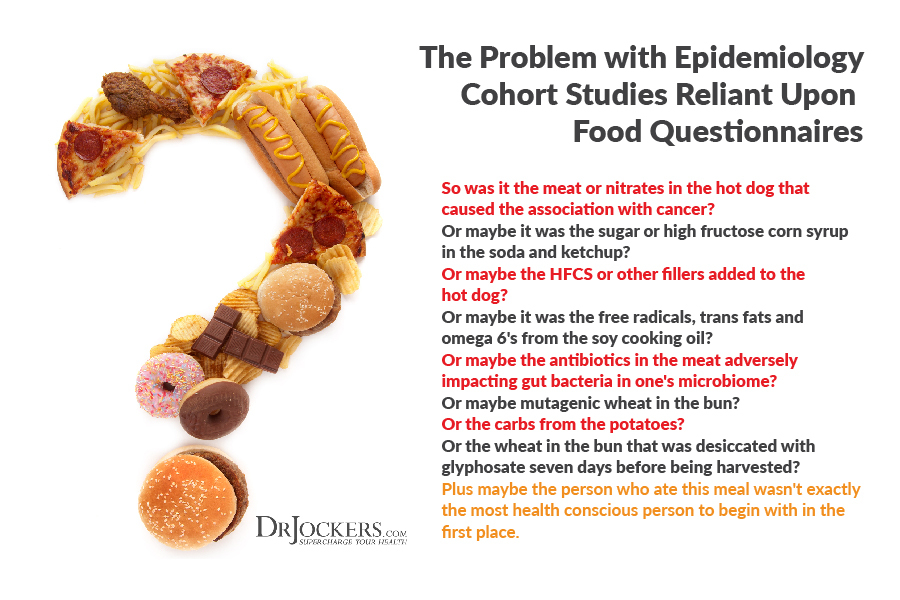
Confounding Variables
So these studies were founded on weak evidence already but it doesn’t end there. Here is a direct quote from the paper:
- Participants who consumed a relatively low percentage of total energy from carbohydrates (ie, participants in the lowest quantiles) were more likely to…have high body-mass index, exercise less during leisure time, have high household income, smoke cigarettes, and have diabetes.
Let me get this straight… People who smoke more, have diabetes, don’t exercise, are heavier and eat a low carb diet have a very small increased risk of dying? How can we attribute that to a low-carb diet in any way?
This study was not equipped to answer the question if it was due to the type of food, or if it was due to numerous other potential factors.
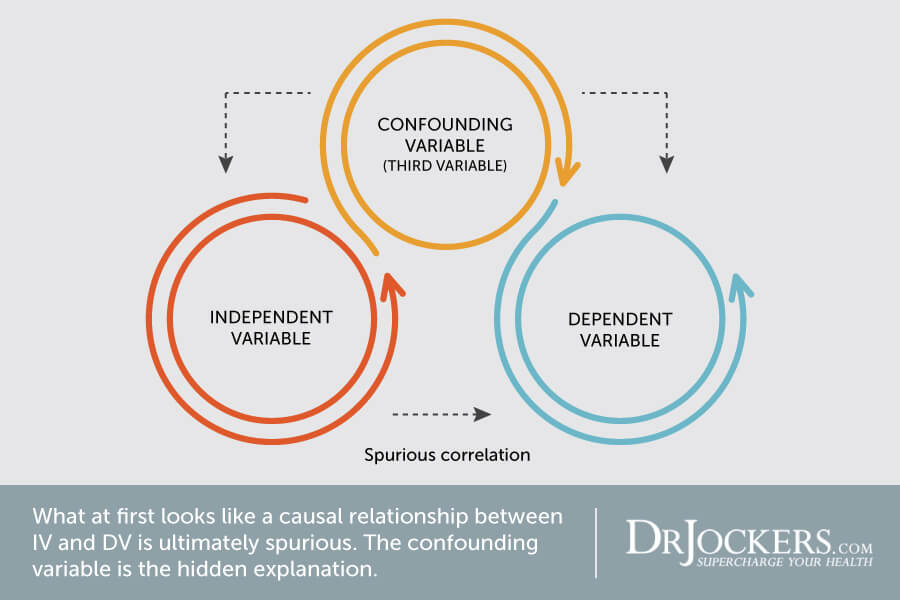
Skewing the Research
There are plenty of other issues with the study such as not controlling for quality of carbohydrates, quality of protein sources, or comparing those who combined vegetables with meat. Hopefully you can see that concluding “Low Carb Diets Kill” from this type of study is an inaccurate conclusion. It is catchy and will get clicks, but that doesn’t make it accurate.
It would be excusable if this was a rare instance. However, this happens over and over again. It’s easy to call these ”bad studies” or “poorly done studies.” In reality, there is nothing wrong with the studies themselves. The problem is in how we interpret and report the findings.
Those who promote the results as causative fact simply do not understand how science works.
At most, we can conclude that this is an interesting finding that deserves more rigorous studies to decide if there is a single causative factor (such as amount of red meat or lack of vegetables or source of carbohydrates or smoking) to directly explain the risk.
Does that mean eating meat helps us live longer?
In fairness, we also do not have high quality long term studies suggesting that eating a diet low in carbohydrates and high in fat with ample animal food sources reduces our risk of dying. That data simply does not exist. We do have some studies showing improved blood sugar, inflammation markers, and bodyweight in a high-fat, low-carb group in comparison to a low-fat group (2, 3).
So, what do we do in the absence of conclusive data? We do our best to find out what works for each individual.
In recent years we have had a simultaneous increase in meat consumption along with a decline in heart disease. This is illustrated in the graphs below. What this shows us is that the story is a little more complex than meat or no meat.
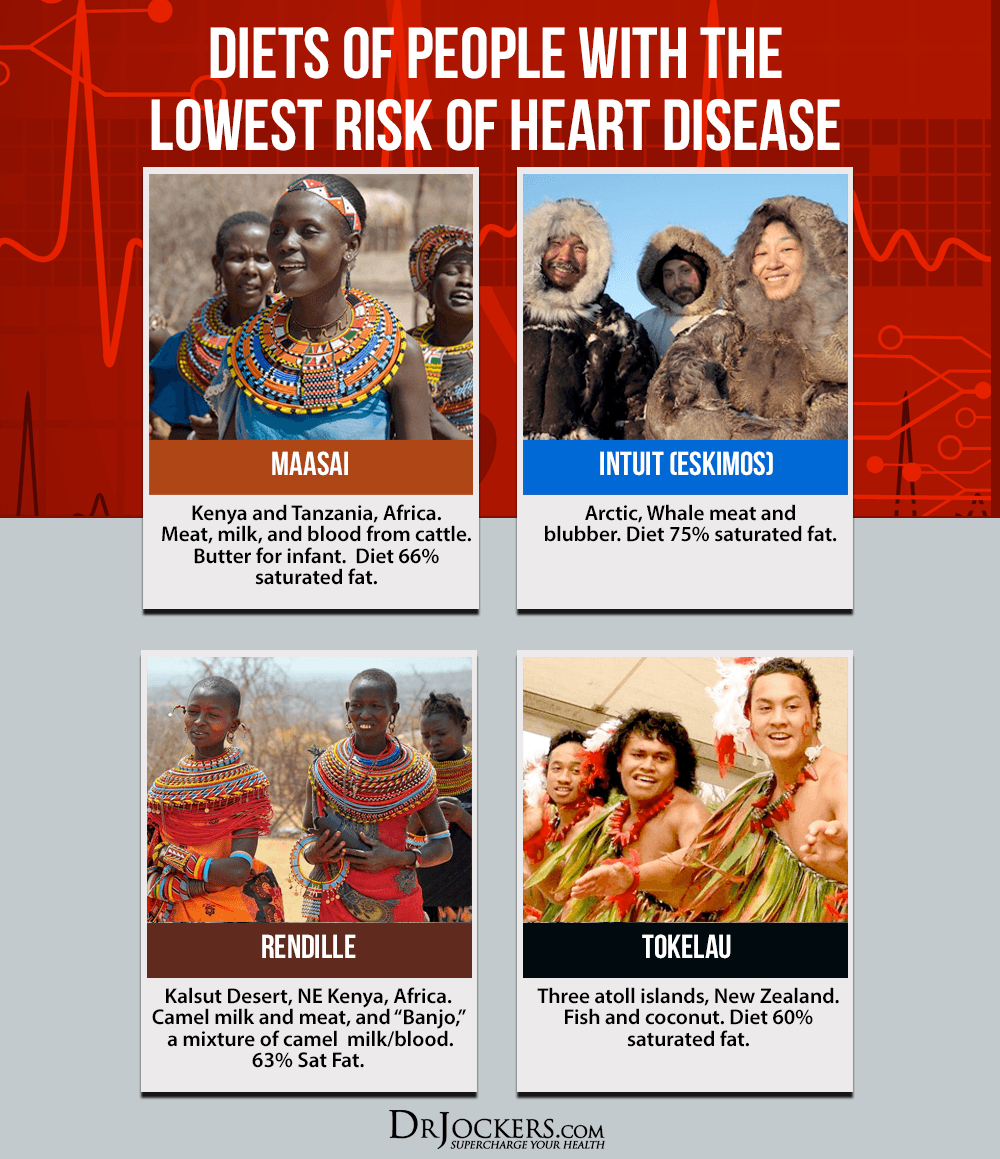
Reliance on Cohort Studies
As discussed before, many studies that supposedly expose the dangers of meat consumption heavily rely upon cohort studies using food questionnaires as data. At best, these kinds of studies can suggest correlations between different variables and guide future research with more controlled parameters. Be careful of those who use correlational cohort studies to argue that meat absolutely 100% causes health problems.
An example of this logical shortcoming is the recent statement by the American Heart Association that coconut oil is dangerous for your health. What we know now is that these claims are largely founded on some very old cohort studies that have been largely disproven since.
These studies are based around the old concept that saturated fats and cholesterol are what cause heart disease. In reality, it is more likely inflammation that causes heart disease – sugar and processed vegetable oils being two major sources of inflammation.
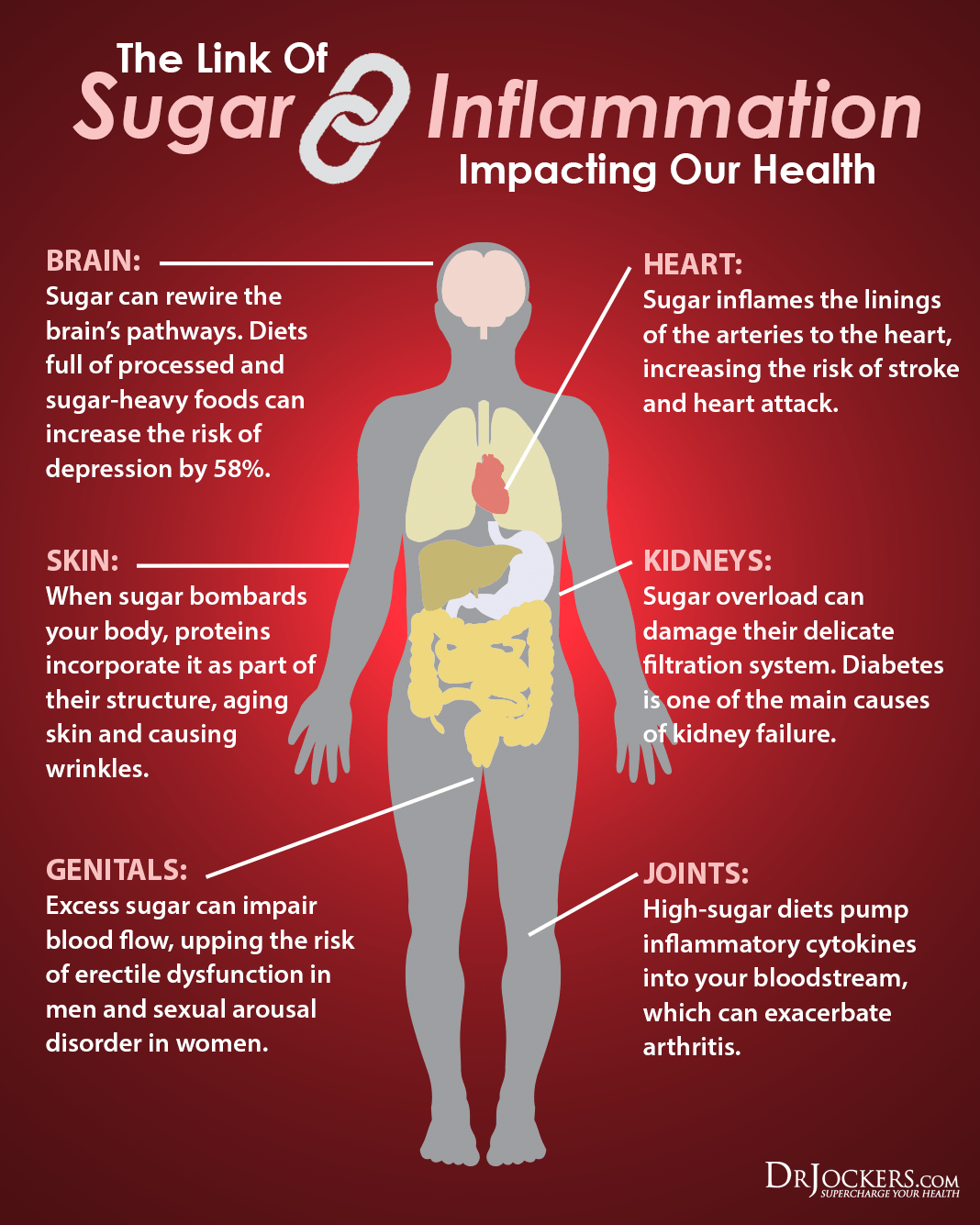
Other Common Meat Myths
If you’ve tuned into some of the recent pop documentaries on the topic of nutrition, you may have seen those portraying all meat and related industries as the worst thing in our society. They will claim consuming meat is both destructive to the body as well as the environment.
While factory farming fits the bill in some cases, there are nuances to these arguments. In fact, many of these arguments are completely unsubstantiated. Dr Jockers wrote a great piece breaking down these popular arguments in his What the Health Movie Review.
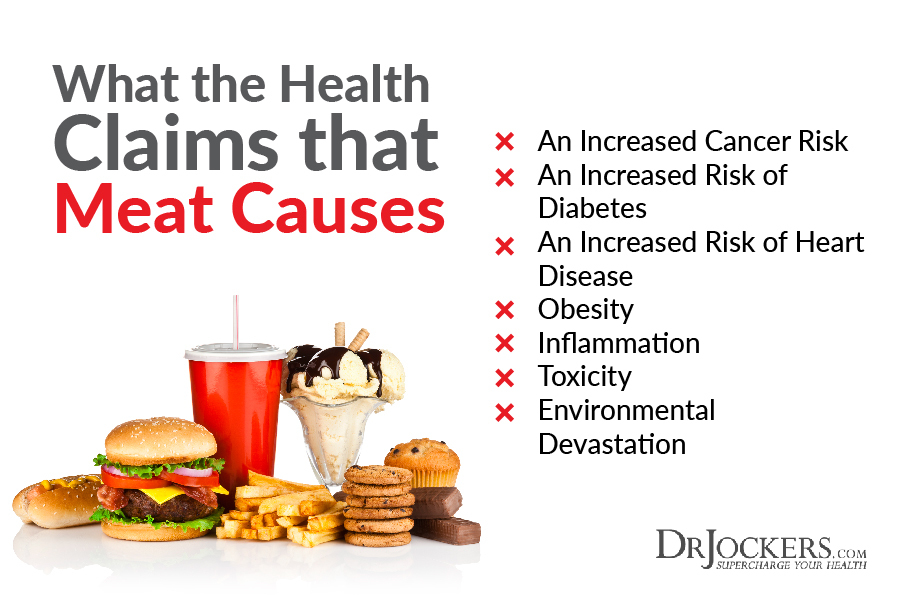
Increased Risk of Cancer
In many documentaries, blogs, and other prominent plant-based nutrition sources, it is common to refer to a particular study that supposedly showed an increased risk of colon cancer in those who ate meat (4).
This study is often referred to as showcasing a “20% increase in cancer risk”. In reality, there is a 1% increased risk of colon cancer amongst those who consume heavy amounts of processed meats (like salami and bologna) on a daily basis. The reason people are able to interpret this as 20% is because there was an increased absolute risk of 5% to 6% of colon cancer between non-meat eaters and meat eaters, respectively. The increase of 5% to 6% is a relative increase of 20%. The graphic below goes a little more in-depth on this.
If you are consuming fresh, pastured meats – especially in combination with vegetables and herbs, I would speculate that the risk would be minimal.
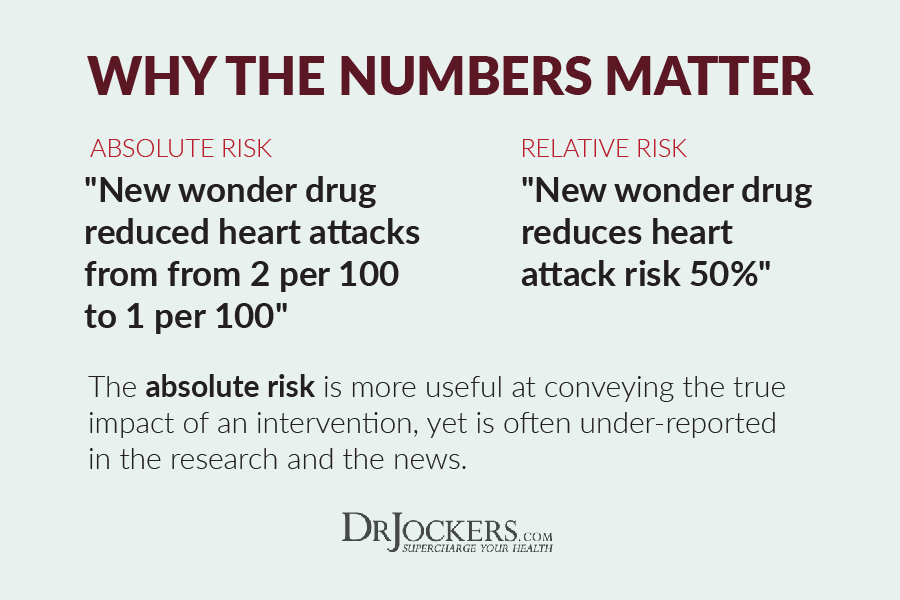
Increased Risk of Diabetes
It is also common for plant-based advocates to claim that meat consumption is a more significant factor in determining diabetes risk than sugar consumption is. I simply do not buy this argument. Ironically, their commonly proposed solution is to remove all fats and animal products form the diet and replace the majority of calories with carbohydrate sources.
When carbohydrates are consumed, they are converted into glucose. Insulin is used as a transport molecule to carry glucose into the cells. The more carbs are consumed, the more insulin is needed to get that glucose into the cells.
Eating too many carbs over time can desensitize your cells against insulin signals. What this does is prevents glucose from being able to enter the cells. Instead it hangs out in the blood and this is known as insulin resistance. These conditions ultimately lead to things like type II diabetes.
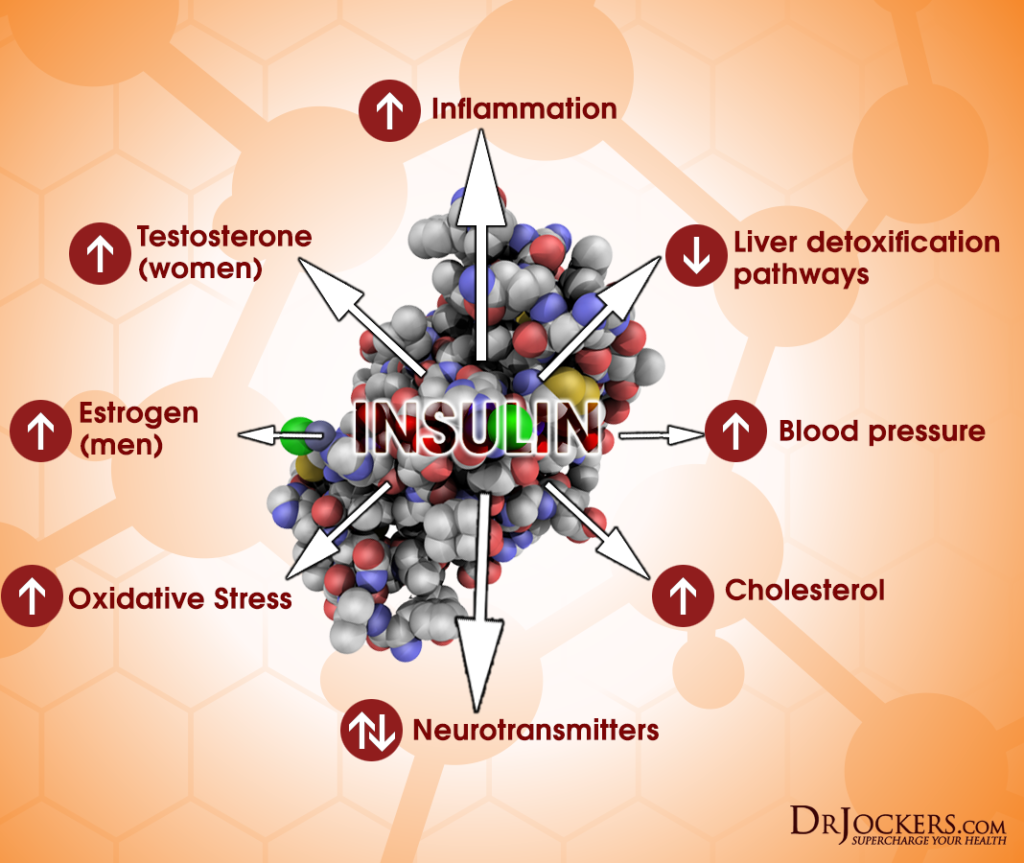
Increased Risk of Heart Disease
A commonly generalized opinion is that all meat consumption leads to heart disease or at least contributes to it. Again, the science often cited for this claim is based on cohort and food questionnaire studies that are incapable of suggesting any kind of causation between variables.
A recent 2017 review study in the International Journal of Preventative Medicine, looked at the correlative relationship between red meat consumption and heart disease. Although this is also based on correlative data, the authors of this study reviewed several previous studies on the topic and determined that there was no significant relationship between red meat consumption (supposedly the most unhealthy meat) and heart disease risk (5).
In fact, much evidence suggests that cholesterol is not the issue here. Oxidized cholesterol does cause problems, however. Oxidation of cholesterol often occurs when inflammatory pathways in the body are elevated (6, 7).
The graphic below outlines some interesting facts about factors that influence heart disease risk.
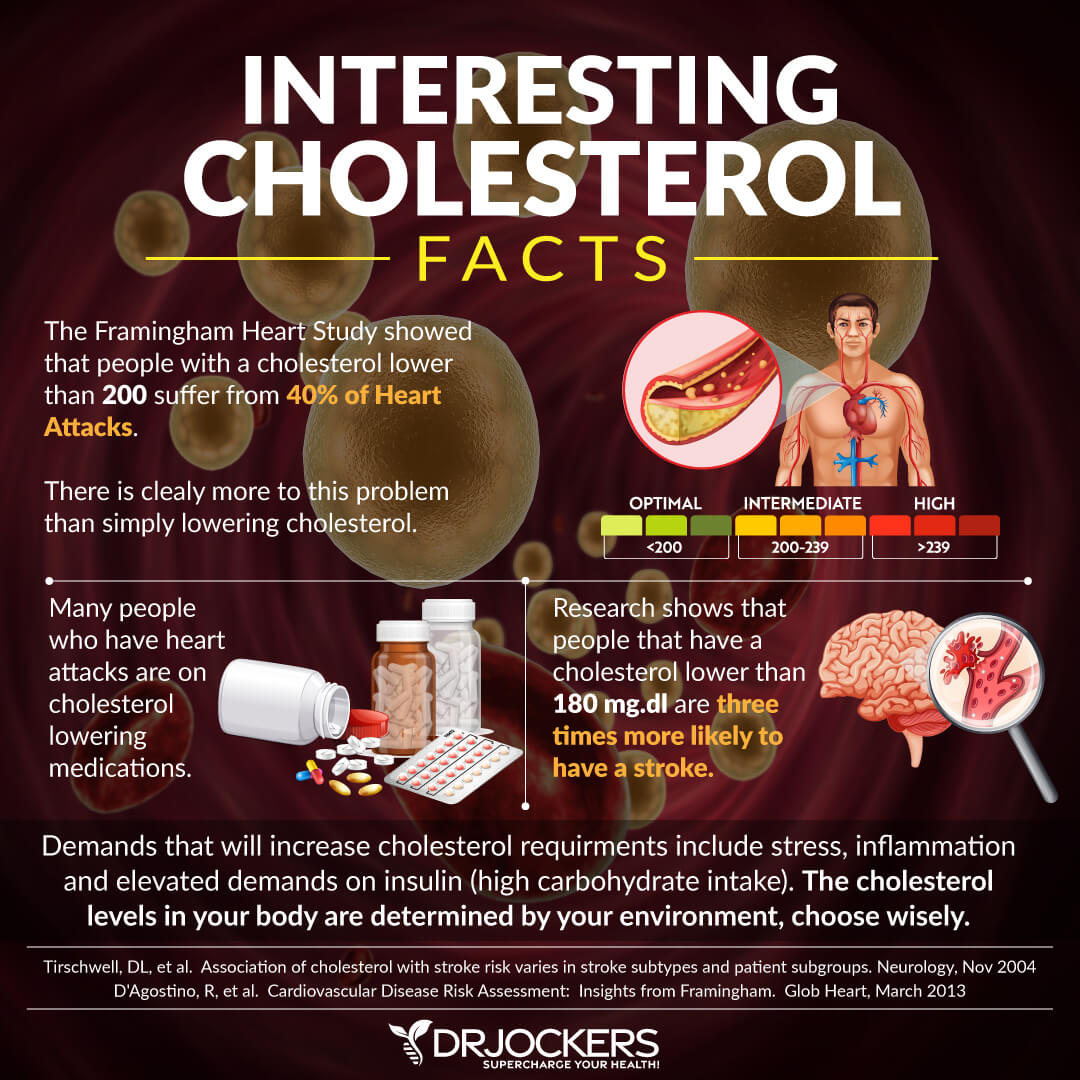
Bad for the Environment
One final common argument made against the consumption of meat is that it is harmful to the environment. The arguments for this typically discuss water requirements, greenhouse gas emissions, animal welfare, and the production of feed.
While factory farming operations are certainly devastating for the environment, there is a movement called regenerative agriculture that seems to be actually be a vital component to sustainable framing practices.
We can actually use pasture-feeding animals to sequester carbon in the soil and return a diverse abundance of microbes to our environment. The result is more nourishing foods and a cleaner, healthier environment. The graphic below goes into more detail about how this process works.
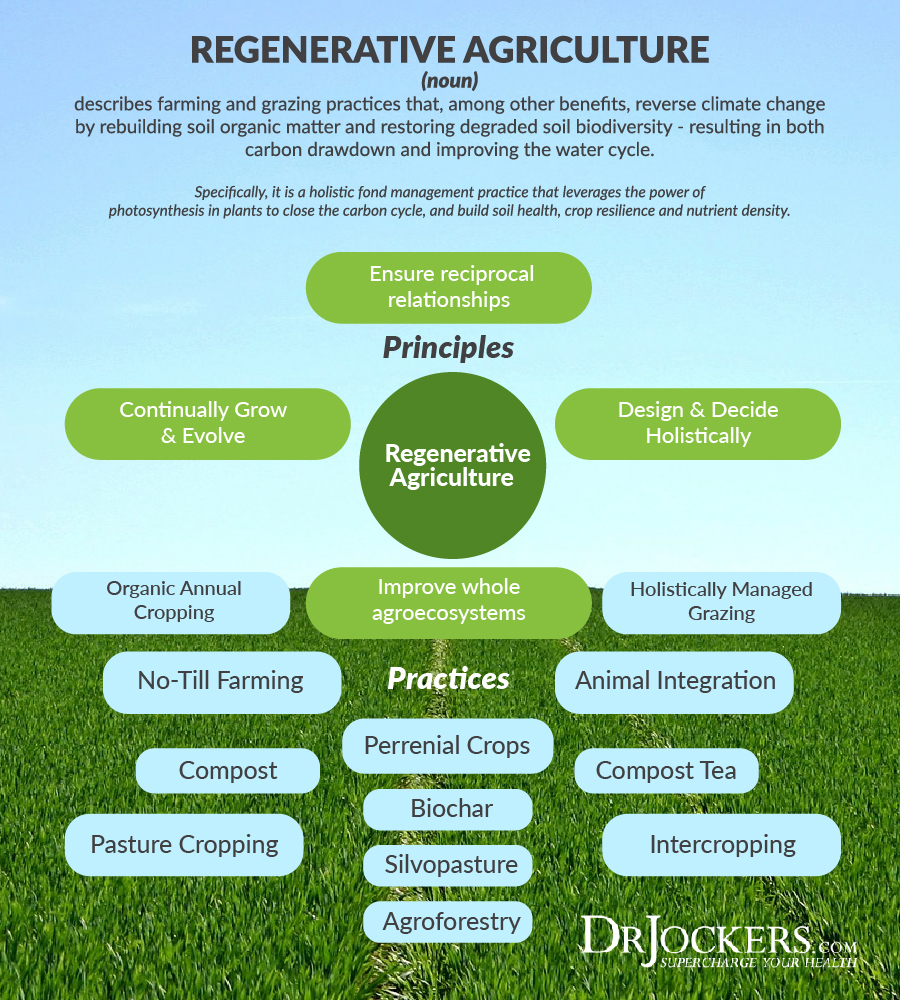
Where to Get the Best High Quality Meat Products
I get my grass-fed and grass-finished beef from Wild Pastures which provides the highest quality meat products from farmers who take great care of their land and their animals. By partnering with a network of small, local farms across the country and buying in bulk, (absolutely no imported meat or factory farms!), they are able to charge less than competitors – while offering higher quality, fresher meat.
Here are the reasons why I LOVE using Wild Pastures
- High-Quality Meat: Delicious 100% grass-fed beef, pasture-raised chicken, heritage-breed pork, and wild-caught seafood.
- Unbeatable Value: Average cost = Less than $7 per meal.
- Flexibility: Box options and delivery frequencies to fit your needs, cancel any time with no penalty.
- Convenience: Great-tasting, high-quality meat you can feel good about, delivered right to your doorstep (FREE shipping).
- Decisions That Make a Difference: Wild Pastures cares about animals and our planet, improving livelihoods for farmers and better meals enjoyed together.
How Wild Pastures Works:
- Wild Pastures sources from farmers and fishermen who meet the highest standards for quality.
- You choose your box and delivery frequency. They offer curated and customized boxes, so you get exactly what you and your family love.
- Wild Pastures ships your order, frozen at the peak freshness and packed in an eco-friendly, 100% recyclable box.
- You enjoy high-quality meat delivered to your door and more time for amazing meals together.
If you sign up for Wild Pastures today, you can get $100 off (($20 OFF your first 5 boxes!)
My Perspective on Meat as a Cardiologist
From my clinical experience as a practicing cardiologist, it is painfully clear that a “balanced diet,” or eating in ”moderation” are not the answers to our country’s ailing health. Instead, we need to find a way of eating that is “extreme” enough to reverse chronic disease, promote health and fit into our lives.
Are you eating in a way that helps you maintain a healthy weight, promotes metabolic health (i.e. reverses diabetes and metabolic syndrome), and reduces markers of chronic inflammation? Are you eating a diet you enjoy, that helps you feel energetic, that allows you to perform your best, and that you can maintain for the long term?
If you answered “Yes” to both of these questions, then my next questions is: What more data do we need?
Don’t believe the hype. Don’t buy the click-bait headlines. Instead, dig deeper, educate yourself. If you still need direction, work with a professional. Just make sure to pick someone with clinical experience, an open mind, and the ability to see you as an individual.
About the Author
 I hope to be the most unique cardiologist you have ever encountered.
I hope to be the most unique cardiologist you have ever encountered.
Sure, I am a card-carrying, board certified cardiologist. And I spent years learning the invasive procedures and the medications used to treat heart disease. Now I want to do everything in my power to make sure those multi-billion dollar tools and drugs go unused.
After receiving extra certification as a personal trainer, functional medicine practitioner, behavior modification specialist and more, I am uniquely positioned among doctors to help people transform their lives.
My goal is to inspire individuals just like you to dictate your own health by adopting healthy lifestyle habits that allow you to achieve your best health ever:
- Health free of prescription drugs.
- Health that leaves you feeling great, feeling energetic, and living the life you have always dreamed.
- Health with you in control
These beliefs sound fairly simple and should not be foreign to us. Unfortunately, in today’s healthcare system, they are completely foreign to most. That is why I encourage people to break free from the confines of our outdated and broken healthcare system.
A low carb lifestyle is the perfect example of our broken system. High quality data has shown the health benefits of low carb lifestyles for many, yet our healthcare industry refuses to accept it. That is part of my mission as The Low Carb Cardiologist. Through my book Your Best Health Ever, through my podcast The Low Carb Cardiologist Podcast, through my blog, and through all my outreaching I hope to change the narrative of our health. I hope the change the narrative of your health.
I look forward to you joining me on this journey!
Bret Scher, MD FACC
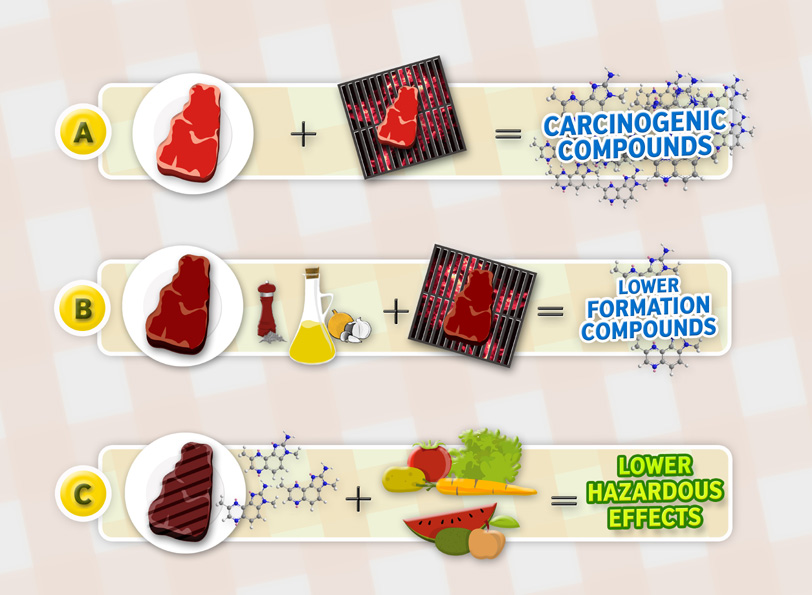

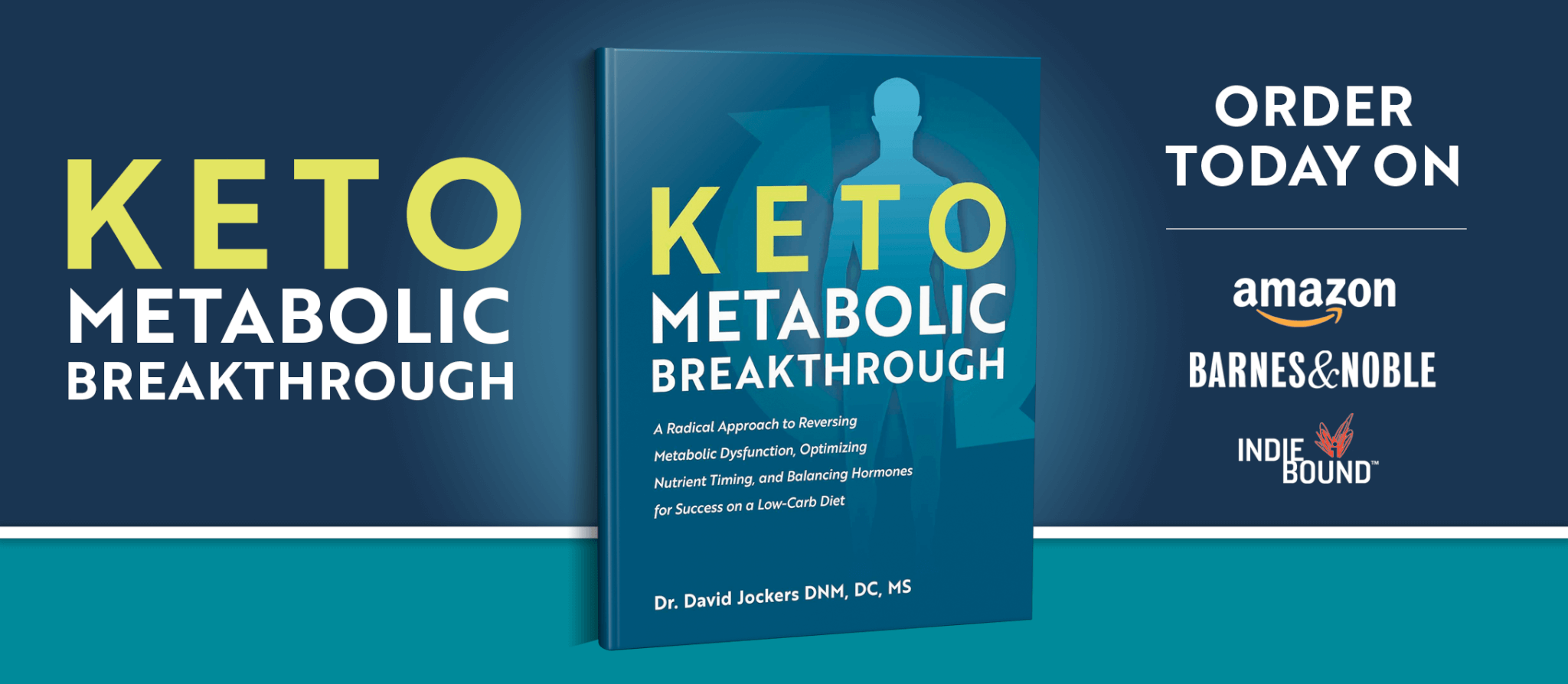



Hi Bret,
After your greatly informative article, I was really wanting to know YOUR Perspective on Meat as a Cardiologist. Somehow, despite the carefully reading the section that promised to reveal it, I still dont know…
* whether you eat meat (you probably do, but since you didnt say so in that section, I dont know), and
* if you do, what meat/s do you eat and how much/often?
Please enlighten us. You bio suggests that your perspective would be valuable.
Gary
Hey Gary, we share similar perspectives on this. I recommend pastured meat as a great source of nutrition. Balancing your meat intake with organ meats and bone broth is a great way to prevent amino acid imbalances. Eating plenty of plant foods and finding your ideal protein intake are important! Here’s a helpful article: https://drjockers.com/much-protein-consume-daily/